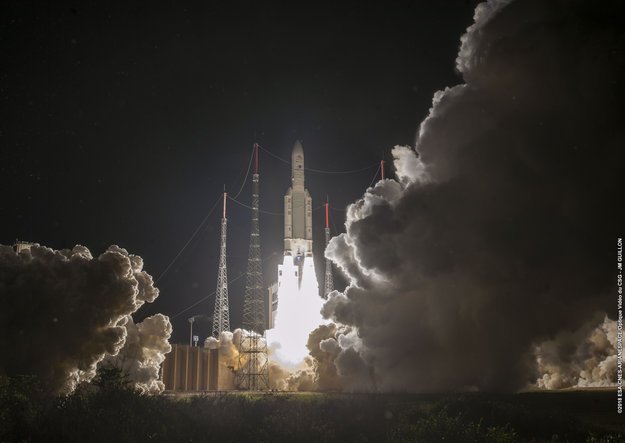Europe and Japan to explore planet Mercury to examine gravity of Sun
European Space Agency and Japanese Space Agency together have successfully launched the space aircraft to explore Mercury.

- Country:
- Japan
European Space Agency (ESA) and Japanese Space Agency (Japan Aerospace Exploration Agency; JAXA) together have successfully launched the space aircraft to explore planet Mercury.
Today morning from French Guiana the ‘Ariane 5 rocket’ thrusters blast off to a 7-year long journey to Mercury. The Scientist from ESA and JAXA have worked years to set a probe which will inspect the closest ally to Sun.
Ariane 5 rocket carries unmanned probe ‘Bepi Colombo’ named after famous Italian scientist ‘Giuseppe Bepi Colombo’ which will introspect the surface and magnetic field of Mercury.
Bepi Colombo carries two probes, one from ESA’s ‘Bepi’ which will collect information of the planet from the inner object and JAXA’s ‘Mio’ which will revolve around the outer orbit of Mercury.
These two probes are crucial to understanding the Mercury too which we have known less than Mars, Jupiter and Venus.
This probe which will reach Mercury by December 2025 will follow the elliptical path of Earth and Venus to finally reach the hottest planet. Mercury which has an extreme condition where its Sun-facing surface temperature is 430 degrees Celsius (800 degrees Fahrenheit) and another side of the surface is as cold as minus 180 degrees Celsius (minus 290 degrees Fahrenheit).
The $1.5 billion (1.3 Billion Euros) project is the third such probe to reach to the Mercury after NASA’s messenger and Mariner 10 probe. The success of this project depends a lot to the scientist as this probe will be helpful in examining the gravity of the sun, solar radiation and the very nature of the planet.
According to economic times the ESA director general Jan Worner said in a statement "Beyond completing the challenging journey, this mission will return a huge bounty of science."










